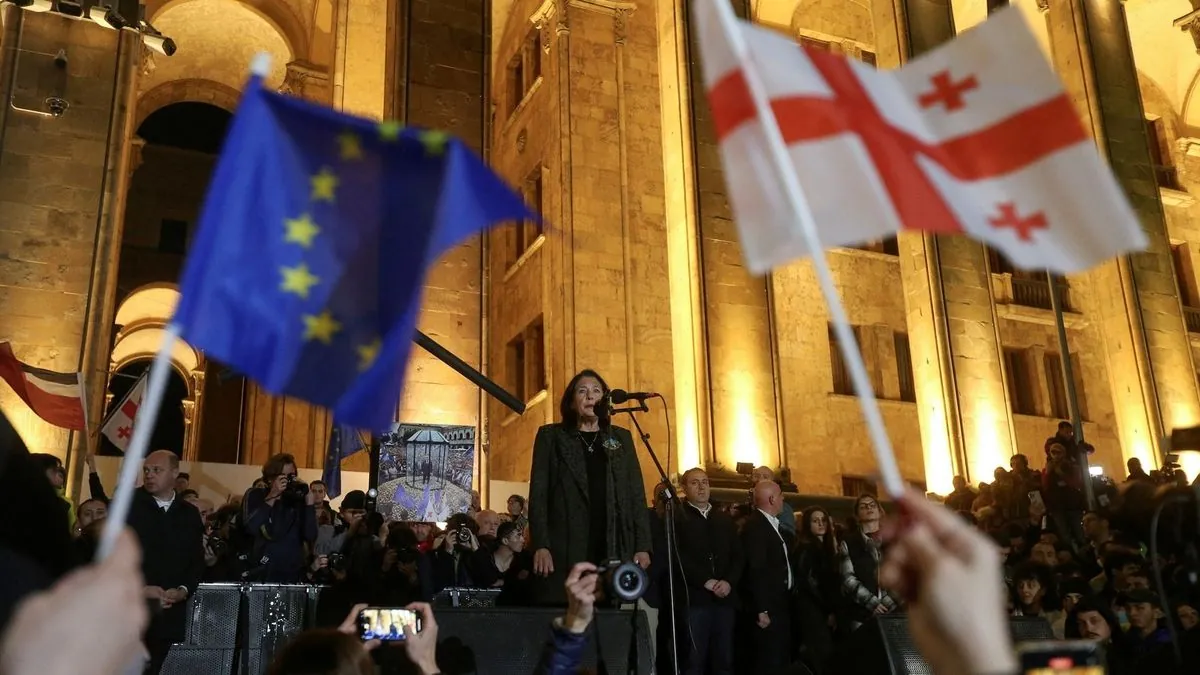Female leaders take stand as democracy faces new threats in Eastern Europe
Women worldwide step up to protect democratic values while facing strong opposition from authoritarian forces. US security experts now re-think their approach to womenʼs role in maintaining global stability

Last month‚ during Georgias disputed election Salome Zourabichvili stood against pro-Moscow forces that tried to claim victory before vote-counting was done (while russian-backed groups harassed voters and used water-cannons on EU-flag holding protesters)
Other female leaders show similar strength: Maia Sandu of Moldova fights russian fake-news; polish women helped remove right-wing PiS party; hong-kong females lead anti-chinese protests
The US security world doesnt take womens roles seriously enough - back in early 2000s one top-general said:
Weʼll talk about womenʼs issues after we secure the place
Today many countries see womenʼs rights going down-hill: from iranʼs gender rules to kenyas anti-female trends; internet hate against women grows too
The Women Peace and Security plan from last year shows how gender-bias links to violence; but some miss its point thinking its just about hiring more women. The real goal: seeing how gender views help spot early signs of power-grab politics
Look at these examples of bad leaders:
* Vladimir Putin talks about christian values while making domestic abuse rules weaker
* Viktor Orban in hungary blocks women from media and pushes them to stay home
* Alexander Lukashenko tried forcing out female opposition
* Xi Jinping wants chinese women to forget work and have kids
US can do three key things: help womens groups world-wide; use gender info in spy-work; join more talks about feminist foreign-policy. These steps could help spot democracy problems early-on





























